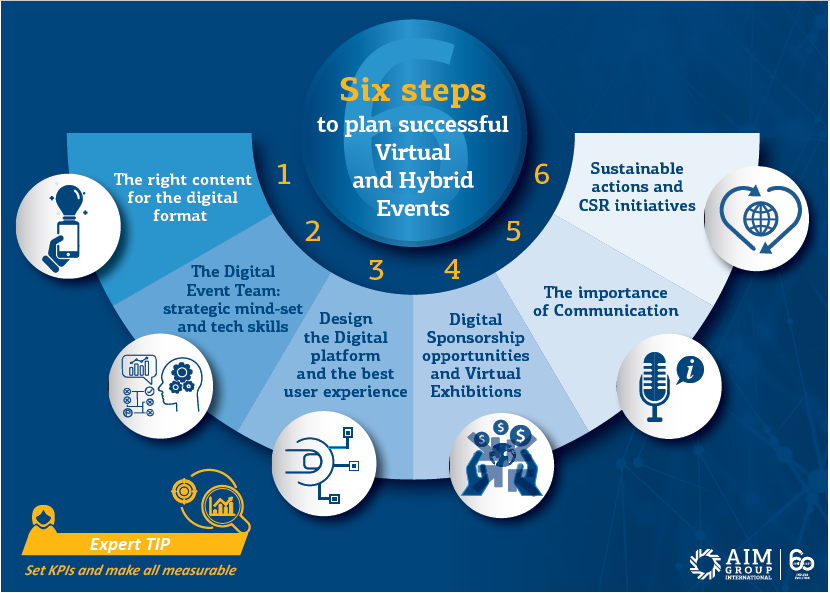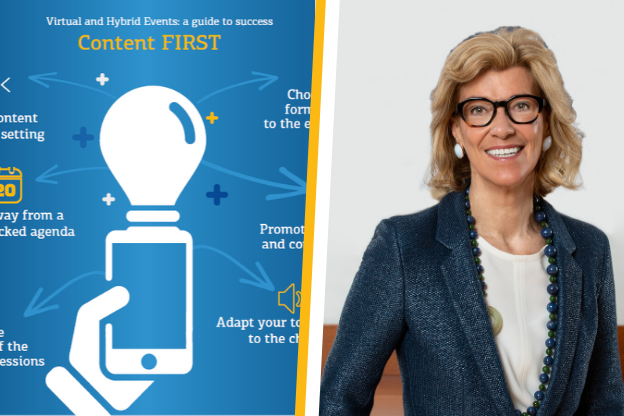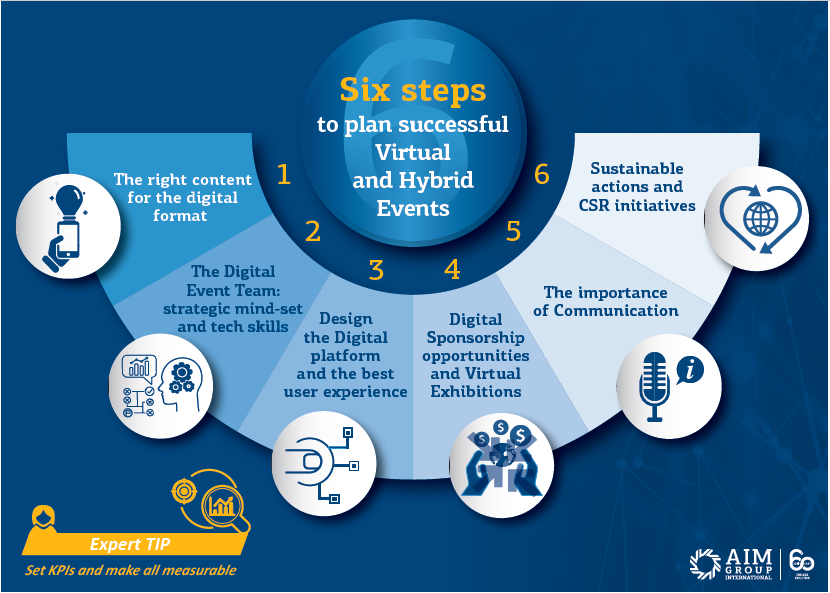
Six steps to plan successful Virtual and Hybrid Events: a new White Paper by AIM Group International
 Annalisa Ponchia tells us how to plan and realise a digital or hybrid event that satisfies attendees, speakers and sponsors by choosing the right format, technology, adapting content, agenda and channels
Annalisa Ponchia tells us how to plan and realise a digital or hybrid event that satisfies attendees, speakers and sponsors by choosing the right format, technology, adapting content, agenda and channels
AIM Group International today publishes a new White Paper entitled: Virtual and Hybrid Events: a guide to success, signed by the senior expert Annalisa Ponchia, Director of Innovation and Customer Experience AIM Group International.
The global pandemic has forced the event industry to embrace and explore the realm of virtual meetings like never before. AIM Group has already organised more than 90 digital events (congresses, CME courses and corporate meetings) in the early months of 2020 and a further 180 virtual events will happen by the end of the year.
During the pandemic many corporate and association clients had their first experience of fully virtual event, often planning it in very short time frames. While the digital pivot is a necessity, in unprecedented circumstances, the need to become digital sometimes can pave the way for virtual events with little or no strategy and design, lack of creativity and professionalism.
That is why AIM Group decided to leverage the experience gained from our international client experiences to prepare guidelines on how to plan and organise virtual events that satisfy the mix of different stakeholders – attendees, speakers and sponsors, leveraging the new opportunities offered by the virtual formats and channels.
“The organization of a virtual and hybrid event requires a DCO, not a typo (!), this is a DIGITAL CONFERENCE ORGANIZER, a team with specific knowledge and competences and the ability to offer strategic guidance on planning events with full or partial digital components” outlines Annalisa Ponchia.
Before embarking on a new virtual or hybrid event, you need to follow a strategic map and complete a number of actions. The methodology presented in the White Paper, downloadable for free from the AIM Group website, suggests six easy steps:
- Content FIRST. Linking the content with the right communication format and style should come first, adapting the tone of voice, session formats and tools.
- The Digital Event Team: strategic mind-set and tech skills. From the Digital Event Strategist to the Content & Resource Manager or the Digital Tools expert, there are several specialist skillsets and profiles that are needed for this kind of event.
- Digital platform and the best user experience: how to choose the most suitable solution? Whether it is a fully virtual event, a hybrid or multi-hub digital event, you must assess your needs first and then choose the right technical equipment and tools.
- Digital Sponsorship opportunities and Virtual Exhibitions. It is important to consider and find new ways to generate sponsor value and not simply replicate the ones used for in-presence events.
- The importance of Communication. A focused effort on communication is needed to gain attention, reliability and trust from your target audience and engage users throughout their journey before, during and after the event.
- Sustainable actions and CSR initiatives for virtual events. Online events can be much more environmentally sustainable than physical events, we must feature this and also look for opportunities to add CSR initiatives to leave a legacy on the community.
“Organising a digital event can open a wide range of new opportunities because you are not limited by the usual physical barriers, you can very easily expand the audience and with the correct event duration and timetable you can even prolong the event lifespan” adds Annalisa Ponchia. “There is one extra tip that I would suggest and that is leveraging data and feedback to make sure that the event is fully measurable. If you set clear KPIs at the outset and leverage all the channels from analytics to social media and the event app then you will be in a great position to measure the event impact”.
“Virtual is here to stay: online and hybrid meetings are expected to become an integral part of corporate and association meeting strategies, even when large in-presence events resume”, says Patrizia Semprebene Buongiorno, Vice President AIM Group International. “Planning a virtual or hybrid event is much more complex than you would imagine. Mastering virtual is the first step, but it is also crucial to leverage online event strategies to create memorable and engaging hybrid experiences. Our teams are consulting clients to embrace the innovation and are fully committed to explore the new possibilities and find new, creative solutions”.


